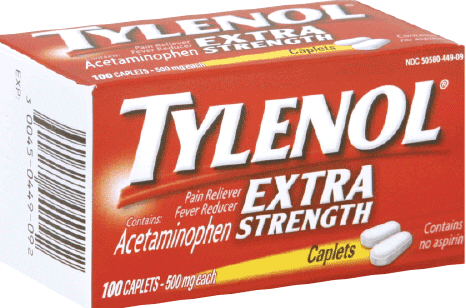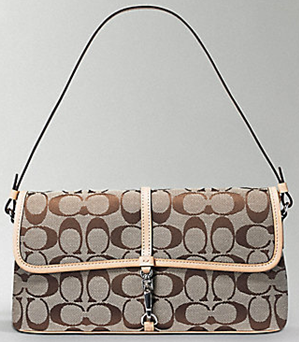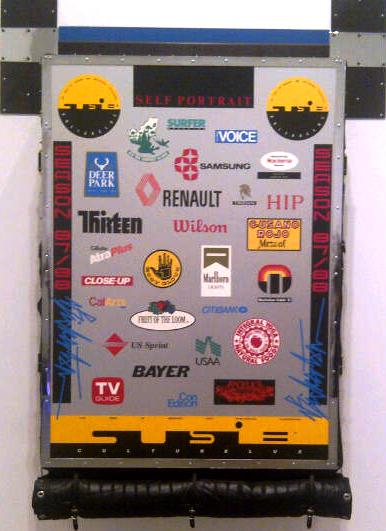Entries by Michael Atkins (1064)
Response to Tylenol Tampering Crisis Shows the Value of Brand Reputation
 Johnson & Johnson’s swift response to the 1982 tampering crisis
Johnson & Johnson’s swift response to the 1982 tampering crisis
illustrates the value of a brand’s reputation.
The Tylenol tampering crisis happened 30 years ago this weekend.
The proactive way Johnson & Johnson reacted — quickly pulling its product off the shelf — is regarded as a model for companies responding to a public relations crisis.
Johnson & Johnson recalled $100M worth of product. A financial disaster, to be sure, but the company correctly concluded the damage would have been a lot worse if the public could not trust the purity of its product.
An NPR story I heard yesterday emphasized this point. It quotes a marketing ethics professor as saying: “If you’re a really good company like [Johnson & Johnson was] in making this recall, you’ve got to say, if we don’t protect the brand name and our integrity of our reputation, then nothing will matter in the long run.”
Well said. It’s a reminder all brand owners should take to heart.
The reputation a trademark represents means everything. As Johnson & Johnson can attest, it’s not something a brand owner can completely control. But the reputation connected with a trademark is something an owner certainly can influence, and should jealously guard. It doesn’t matter if you’re a multinational like Johnson & Johnson, or you own the neighborhood hair salon. The brand owner’s honesty, the value it provides, the way it treats customers, the quality of its goods and services — these are the things that matter.
A company’s reputation is so tied to its trademark that if its reputation is ever tarnished beyond repair, the only rational response is to start over with a clean slate and invest in a new brand. That’s what Phillip Morris (now Altria) did. But it is so much better to do what Johnson & Johnson did instead: avoid catastrophic brand harm by doing whatever it takes to protect one’s good name.
Unless paired with a company’s good reputation, a trademark is no asset at all.
Coach Sues Snohomish Antique Store for Counterfeiting
 Coach’s branded purse. Genuine article available at a Coach shops;
Coach’s branded purse. Genuine article available at a Coach shops;
counterfeit version at local antique store, Coach’s complaint alleges
On Thursday, Coach, Inc., filed suit against a Snohomish, Wash., nostalgia and antique store for counterfeiting.
The suit, filed in the Western District of Washington, alleges that Pegasus Theater Shops and its owner have been selling handbags, wallets, sunglasses, reading glasses, cellular phone cases, and watches bearing Coach’s trademark, or a trademark that is indistinguishable from Coach’s “CC” logo, without Coach’s authorization.
The suit also names the shop’s owner individually. It alleges she is the “active, moving, conscious force behind the alleged infringing activities.”
The suit asserts claims for trademark infringement, trade dress infringement, false designation of origin, and unfair business practices.
The defendants have not yet filed an answer.
Counterfeiting claims are relatively rare in these parts, though obviously not unheard of.
The case cite is Coach, Inc. v. Pegasus Theater Shops, No. 12-1631 (W.D. Wash.).
Ninth Circuit Vacates $60M Jury Award in Trademark Case
If the court’s jury instructions aren’t correct, the verdict that follows can’t stand.
That’s the principle the Ninth Circuit applied last week in Neurovision Med. Products Inc. v. NuVasive, Inc., a trademark infringement case in which the jury awarded Neurovision $60M.
The basis for the jury’s finding was that NuVasive committed fraud in procuring its trademark registrations, that Neurovision had prior rights in its trademark, and that NuVasive willfully infringed Neurovision’s trademark rights. At issue were the parties’ competing rights to NEUROVISION as a trademark.
The Ninth Circuit found the jury’s verdict that NuVasive fraudulently obtained its trademark registrations must be vacated because the Central District of California erroneously instructed the jury as to the elements needed to prove fraud on the U.S. Patent and Trademark Office. Such proof requires a “material misrepresentation in the affidavit on the basis of which the mark was registered.” Pony Express Courier Corp. of Am. v. Pony Exp. Delivery Serv., 872 F.2d 317, 319 (9th Cir. 1989).
The court noted: “There is no requirement that an applicant for a trademark registration disclose all prior use of a mark, contrary to the district court’s instruction. Instead, an applicant must disclose only those prior users that the applicant believes have acquired superior rights to the mark in the classification for which registration is sought. The district court erred by instructing the jury to determine only whether NuVasive omitted knowledge of [Neurovision’s] prior use of the NEUROVISION mark; the proper inquiry is whether NuVasive wilfully omitted knowledge of a superior right held by [Neurovision]. Moreover, the district court erroneously omitted from the jury instructions a key element of proving fraud on the USPTO: that a trademark applicant intend to induce reliance on a misrepresentation.”
The Ninth Circuit also found the district court erred in instructing the jury about what was required to challenge an incontestable trademark.
“The judgment below must be vacated because the district court instructed the jury to answer only whether [Neurovision] ‘establish[ed] trademark rights in the mark ‘NEUROVISION’ through prior use of the mark in commerce,’ and failed to require that the jury determine both the geographic scope of [Neurovision’s] rights and whether [Neurovision] maintained continuous use of the mark following the acquisition of any state law rights in the mark.”
Because it found the district court had “ignored our precedent, persistently cut off or excluded relevant testimony, and repeatedly instructed the jury incorrectly,” the Ninth Circuit took the unusual position of requiring that the case be reassigned to a different judge on remand.
The case cite is Neurovision Med. Products Inc. v. NuVasive, Inc., No. 11-55120, 2012 WL 3900682 (9th Cir. Sept. 10, 2012).
Lawsuit Alleges There's Only Room for One "Pacific Wealth Management"
Last month, Pacific Wealth Management, LLC, filed suit against Pacific Wealth Management, Inc., alleging trademark infringement.
Yep, it’s about PACIFIC WEALTH MANAGEMENT.
The plaintiff, which filed suit in the Western District of Washington, alleges it owns a federal registration to its mark in connection with “investment advice, financial consultation, and financial planning.” The complaint claims the defendant uses the identical mark in connection with finance and estate planning services, which has resulted in actual consumer confusion.
The complaint adds that after raising the issue, defendant’s principal responded by stating: “PWM, Inc. has NO clients!!!!!! Sue me if you want, there are no assets and NO clients! What are you [a]fraid of, me stealing business?”
The defendant appeared in the lawsuit but did not answer the complaint.
The plaintiff then moved for an order of default. On Sept. 7, Western District Judge Robert Lasnik denied the motion because the plaintiff failed to provide evidence it gave the defendant 14 days’ advance notice of its intent to file the motion in accordance with Local Rule 55(a).
The case cite is Pacific Wealth Management, LLC v. Pacific Wealth Management, Inc., No. 12-1310 (W.D. Wash.).
Atkins Intellectual Property Turns One!
 Ashley Bickerton’s “Tormented Self Portrait.” I liked the brands.
Ashley Bickerton’s “Tormented Self Portrait.” I liked the brands.
My firm turned one this weekend.
I’m happy to say the lights are still on, our spirits are still high, and we look forward to another year of helping clients protect their intellectual property rights. Thanks to the many persons who helped make our first year a great success (and a lot of fun)!
To celebrate the milestone, I took the show on the road last week to New York, where I found a little time to duck into the Museum of Modern Art.
One of the first pieces I saw was Ashley Bickerton’s “Tormented Self-Portrait,” featuring a collection of well-known trademarks. The artist’s use of brands in the work is no doubt critical of the role of consumerism in society, but to a trademark lawyer it’s a pretty nice collection of logos.
I’m no art (or social) critic, but I gotta say, choice is good. Trademarks efficiently help consumers decide between competing sellers, and motivate sellers to produce high quality goods. To a trademark attorney, that’s worth celebrating. My guess is that’s the opposite of what the artist intended, but it’s what I see in the work. Cheers to trademarks!